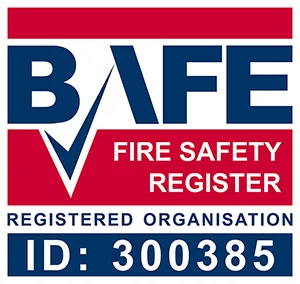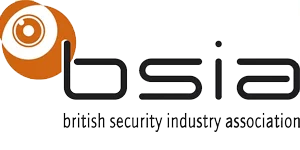If you are running a commercial kitchen, whatever its size, whether for the public or private sector, squaring everything away with your insurers should be a big priority.
Kitchen fire suppressant equipment is hot property at the current time – since most insurers won’t think twice about refusing to provide cover if the appropriate kit isn’t in place.
Indeed, if you are looking to obtain insurance for all elements of a property – such as intruder alarms, access control and CCTV – but your kitchen area has been overlooked and not been fitted with the appropriate fire suppression systems, the insurer may even decide to refuse cover altogether. Or at least be very reticent.
We’ve come across a situation like this quite recently, where the lack of a kitchen fire suppressant system had become an issue. Sutton Coldfield’s oldest independent school, The Shrubbery, which provides education for pupils aged 3-11, underwent a change of ownership in the summer of 2021. The school has been a client of Justice Fire & Security since 2005. Over time, we’ve installed all the intruder and fire alarms, CCTV and emergency lighting throughout the premises.
Unbeknown to the new owners, however, the insurers had raised concerns about fire safety standards in the school kitchen, which provides a weekday breakfast and lunch service for the school’s 100 plus pupils. The insurance company stipulated that appropriate levels of fire safety equipment were needed to cover the main electric hobs and 2 double fronted ovens.
The Jactone KitchenGuard ™ PAFSS system – how it works
For us, this was a perfect opportunity to integrate the Jactone KitchenGuard ™ PAFSS system into The Shrubbery’s kitchen. This system, for which we are approved installers, meets LPS 1223 requirements.
The way the Jactone KitchenGuard ™ PAFSS system works is via detection tubes, which are fixed to the cooker hood, the plenum and the ducting.
In the event of a fire, the detection tube bursts, releasing an extinguishing agent through separate pipework and nozzles, which douses the fire. Simultaneously, the PAFSS system automatically cuts the power supply to the hob, thus ensuring any further heat source to the fire is removed.
What is LPS1223?
LPS stand for Loss Prevention Standard and LPS 1223 are the requirements and testing procedures necessary for the LPCB certification and listing of fixed fire extinguishing systems for catering equipment. The Jactone PAFSS KitchenGuard system is certified to LPCB standard LPS 1223, having been specifically designed to protect cooking equipment and to extinguish fires quickly and efficiently.
The Importance of a Kitchen Fire Suppression System
The Shrubbery School now has a state-of-the-art kitchen fire suppressant system, which has been given a full seal of approval by the school’s insurers.
Matthew Lees, Director at The Shrubbery School said that when they took over the running of the running of the school – his wife Amanda is the headmistress – the insurance company had made it known that a kitchen fire suppression system would be an essential requirement, in order for them to provide comprehensive cover.
“The installation provides us all with peace of mind,” Matthew explained. “We sincerely hope that it will never be necessary to call on the equipment that’s been installed, but it is a huge weight off our minds that, in terms of the fire safety equipment within the kitchen area, everything is now fully compliant.”
Justice Fire and Security Managing Director, Dave Sanders, said that approved kitchen fire suppression systems plays a vital role in maintaining a safe and secure workplace environment.
“Whether it be a school, hospital, hotel or any facility operating a commercial kitchen operation, they are there as a first line of defence to protect your staff and valuable assets.
“A kitchen fire can get out of hand extremely quickly, so having a reliable, rapid response fire suppression system in place is not only sensible, it is also increasingly something which insurance companies are insisting upon. If you are unclear as to whether your current equipment is sufficient, then it is advisable to discuss this with your insurers.
“If they have advised you that an approved kitchen fire suppression system is essential for them to continue providing cover, we would be happy to assist you with installing an appropriate, cost-effective system that meets all current UK safety standards,” Dave advised.
Prioritising Fire Safety in your Commercial Premises - Next Steps
If you operate a commercial kitchen and are concerned about the level or efficacy of your fire suppression equipment, or you have been advised by your insurance company to have your current arrangements assessed and upgraded, Justice Fire & Security are here to assist.
Our fire alarm and activation equipment is designed to meet the highest regulatory standards and is suitable for installation in a wide range of commercial kitchen premises, including restaurants, hotels, schools, hospitals – indeed any location where there is an industrial kitchen. The only exception being fish and chip shops, which have their own specialist systems.
Operating within a 50-mile radius of our Birmingham Head Office - covering the wider West Midlands, Warwickshire, Worcestershire, Staffordshire, Shropshire, Leicestershire and Northamptonshire – Justice Fire & Security have held the National Security Inspectorate NSI NACOSS GOLD accreditation in since 1989. This is recognised by local authorities, insurance companies, police and fire Brigade forces across the region.
For all fire safety enquiries, call Justice Fire and Security on 0845 468 0927 to arrange a free site survey and quotation.






